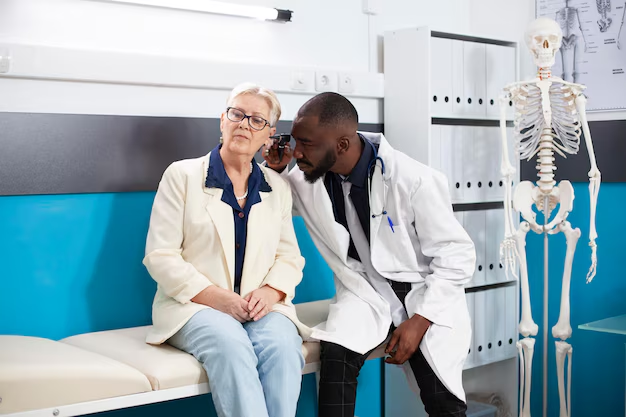Understanding Who Treats Osteoporosis: Your Guide to Finding the Right Specialist
Osteoporosis is often referred to as a silent disease; its impact is quiet yet progressively stealthy, weakening bones until fractures occur from what may seem like minor bumps or falls. As the condition can lurk unnoticed for years, knowing which doctor to consult for osteoporosis is a pivotal step in managing and navigating this health challenge.
What is Osteoporosis?
Before diving into the discussion of which medical specialist treats osteoporosis, it's essential to grasp what this disease entails. Osteoporosis is a bone disorder characterized by decreased density and quality of bone, leading to fragility and an increased risk of fractures, particularly in the hip, spine, and wrist.
Critical Facts About Osteoporosis:
- It affects millions globally, with women being at a higher risk post-menopause.
- Often asymptomatic until a fracture occurs.
- Lifestyle factors, genetic predisposition, and age are notable risk factors.
Who Treats Osteoporosis? Key Specialists Involved
Primary Care Physicians: The First Point of Contact
A Primary Care Physician (PCP) is usually the first healthcare professional you consult when you suspect osteoporosis. Family doctors and internists can order diagnostic tests, such as bone density scans (DEXA scans), and help in the initial evaluation.
Role of Primary Care Physicians:
- Perform initial assessments and screenings.
- Manage and monitor bone health through regular check-ups.
- Refer you to specialists if needed.
Endocrinologists: Hormone Health Experts
An Endocrinologist is a doctor who specializes in hormone-related diseases and may be involved in osteoporosis treatment, particularly since hormonal changes, such as decreased estrogen in women and testosterone in men, are critical factors in bone loss.
Why See an Endocrinologist?
- Detailed hormone assessments and therapies.
- Expertise in managing bone density issues related to hormonal diseases.
Rheumatologists: The Joint and Bone Specialists
Rheumatologists focus on diseases that affect the joints, muscles, and bones, making them appropriate specialists for osteoporotic treatment when associated with conditions like arthritis or connective tissue diseases.
Key Offerings from Rheumatologists:
- Comprehensive diagnosis and management of bone-related diseases.
- Custom treatment plans that may involve medication and lifestyle adjustments.
Geriatricians: Specializing in Older Adults
Geriatricians specialize in the care of older adults—key candidates for osteoporosis. They take into account the complex interplay of aging, frailty, and bone health.
What to Expect from Geriatricians:
- Holistic approach to bone health in the context of aging.
- Coordination of care among different specialties to ensure comprehensive treatment.
Orthopedic Specialists: For Bone Health and Repair
In cases where osteoporosis has led to fractures, an Orthopedic Surgeon or specialist becomes crucial. They address fractures both scientifically and surgically, ensuring recovery and rehabilitation.
Focus Areas for Orthopedic Specialists:
- Surgical interventions and physical rehabilitation post-fracture.
- Guidance on preventative measures against future fractures.
Diagnostic Tests for Osteoporosis
Bone Density Test (DEXA Scan)
The DEXA scan is the most common test for osteoporosis, measuring bone mineral density (BMD) to determine fracture risk.
Blood and Urine Tests
These tests help evaluate the metabolic conditions affecting bone health, including calcium and vitamin D levels, markers of bone turnover, and hormonal levels.
Key Takeaway: Consult with your healthcare provider to determine which tests are necessary for an accurate diagnosis.
Treatment and Management Options
Medications
Medications form a significant part of osteoporosis treatment, including:
- Bisphosphonates: Help prevent bone loss.
- Denosumab: A monoclonal antibody for patients who cannot take bisphosphonates.
- Selective Estrogen Receptor Modulators (SERMs): Offer some of the benefits of estrogen.
Lifestyle Adjustments
Lifestyle changes play a crucial role in managing osteoporosis, such as:
- Nutritional Adjustments: Adequate intake of calcium and vitamin D.
- Exercise: Weight-bearing and muscle-strengthening exercises improve bone and muscle strength.
- Avoidance of Tobacco and Excessive Alcohol: These substances can accelerate bone loss.
Integrative Therapies
Some opt for integrative therapies, like acupuncture and mindfulness practices, to complement their treatment, though they should always be discussed with a healthcare provider.
Preventing Osteoporosis: Proactive Health Steps
Nutrition and Supplements
A balanced diet rich in essential nutrients bolsters bone health. Focus on:
- Calcium: Found in dairy products, leafy greens, and fortified foods.
- Vitamin D: Sun exposure, fatty fish, and fortified foods are primary sources.
Regular Physical Activity
Engage in regular weight-bearing and resistance exercises to strengthen bones and muscles, helping slow the progression of osteoporosis.
Routine Health Screenings
Screenings are critical, especially for women post-menopause and older adults. Regular tests can detect osteoporosis early, allowing for prompt intervention.
In Summary: Osteoporosis requires a multifaceted approach involving various healthcare specialists to provide a comprehensive treatment plan. From primary care physicians who kickstart the diagnostic journey to endocrine or rheumatology experts focusing on related conditions, the path to managing osteoporosis is collaborative. By incorporating both conventional treatments and lifestyle adjustments, patients can effectively mitigate the consequences of this silent disease.
Navigating Osteoporosis: Quick Guide
- 👨⚕️ Consult Primary Care: Start with primary care for initial diagnosis.
- 🦴 Specialist Help: Endocrinologists and rheumatologists are vital for specialized care.
- 💪 Lifestyle Changes: Balance diet and exercise for robust bone health.
- 🔎 Routine Checks: Regular screenings catch early signs.
Empowered with this knowledge, individuals can better navigate osteoporosis, choosing the right specialist and treatment path for their needs.

Related Articles
- a Nurse Is Caring For a Client Who Has Osteoporosis.
- a Percutaneous Is Performed To Treat Osteoporosis Related Compression Fractures
- Can Alcohol Cause Osteoporosis
- Can I Do Pilates If I Have Osteoporosis
- Can I Reverse Osteoporosis
- Can Men Get Osteoporosis
- Can Osteoporosis Affect Teeth
- Can Osteoporosis Be Cured
- Can Osteoporosis Be Painful
- Can Osteoporosis Be Reversed
